Motivational Interviewing Is Best Used in Which Stages of Change
Core motivational interviewing skills. One of the important contributions of the Stages of Change model has.
Motivational Interviewing techniques used in the pre-contemplation stage intervene in the clients beliefs about the importance of change and may also be used to increase self-efficacy about the ability to.
. Varying stages of readiness for change. Raise clients perception of risk and problems with current behavior. Motivational interviewing is a counseling approach designed to help people find the motivation to make a positive behavior change.
Research-based practices--Cover Includes bibliographical references p. Stages of Change - Oxford Aug 16 2019 Motivational Interviewing MI is a specific approach in psychotherapy that began when William Miller published an article that covered principles for interviewing individuals who were abusing alcohol. The OARS represent the spirit of Motivational Interviewing Reflections are MOST important skills learned in MI 26.
These techniques are grounded in the client-centered approach. This client-centered approach is particularly effective for people who have mixed feelings about changing their behavior. This study based on in-depth interviews with 12 school nurses shows how school nurses adapted motivational interviewing and integrated it into their daily practice along with other methods they knew from.
Tip the balance of ambivalence in the direction of change. Its application by school nurses for preventing obesity in children is still new. Later Miller worked with Stephen Rollnick to define the MI technique as.
Describe an overarching motivational interviewing MI strategy effective in brief intervention. These stages will be presented by the clients attitudes and behaviors. The major tenets of motivational interviewing were.
Most clients opting for an assessment will likely be in the early stages of change. There is little or not motivation here to change themselves as the problem is not perceived as that serious. The Spirit of MI Use an MI counseling style to support partnership with clients.
Motivation to change progresses through the following five stages. Extensive research supports its effectiveness and it has become the standard in the past decade. Stages of Change Theoretical Framework Informing MI Prochaska and DiClemente identified five stages of change your patient can experience.
The major tenets of motivational interviewing were designed to provide clinicians with tools to facilitate the change process in clients. These stages will be presented by the clients attitudes and behaviors. The stages of change model suggests that clients who are in the process of changing addictive behavior move through successive stages from limited insight to maintenance of change.
Motivational interviewing is a counseling method used to bring about behavior change. In the case of clients who score high in the pre-contemplation stage willingness or ability are usually implicated in ones levels of motivation to change behavior. Are ready to make a change.
Most clients opting for an assessment will likely be in the early stages of change. In the next session you will use these core skills plus selected tools that help patients better understand their competing priorities and ambivalence to changeto resolve their ambivalence and increase motivation for behavior change. An important concept is that stage-appropriate interventions minimize the risk that patients will push back and lose ground by resorting to an earlier stage of change.
227-229 TABLE OF CONTENTS -- Fundamentals -- Integrating motivational interviewing and stages of change -- Opening the door to change -- Planning for and implementing change -- Maintaining change -- Special populations -- Putting motivational interviewing and stages of change into practice --. Motivational interviewing and the stages of change Precontemplation Stage -The earliest stage where the individual is facing negative issues related to substance abuse. Quite commonly people in the stage of action experience relapsea resumption of the undesired behavior.
The NEW motivational interviewing techniques MI workshop will teach you how to enhance your client engagement. The major tenets of motivational interviewing were designed to provide clinicians with tools to facilitate the change process in clients. Description of Stage Motivational Interviewing Steps Pre-contemplation Person is not yet considering a change or is unwilling or unable to change.
Extensive research supports its effectiveness and it has become the standard in the past decade. It will also enhance client retention as you will be able to monitor your clients progress from a psychological perspective and most. Pre-contemplation behavioural change not considered contemplation change considered determination determined to make a.
Clients Stage of Readiness. Establish rapport ask permission and build trust Raise doubts or concerns in behavior to help develop an awareness of consequences Developing discrepancy between present behavior and important goals motivate change. Motivational Interviewing and Stages of Change.
Elicit reasons to change and identify risks of not changing. The OARS can be utilized in all stages of change but are most useful in pre-contemplation and contemplation stage of change. MaintenanceProchaska DiClemente 1984.
It is the job of the clinician to identify the correct stage and employ specific interventions for the treatment to be successful. This will improve your business by increasing your ability to attract and convert prospective clients from initial first contact. MI is particularly helpful when clients are in the Precontemplation and Contemplation stages of the Stages of Change SOC when readiness to change is low but it can also be useful throughout the change cycle.
The following is a brief synopsis of stage-appropriate strategies for engaging Members in making healthy lifestyle changes. Pre-contemplation behavioural change not considered contemplation change considered determination determined to make a change action behaviour change takes place and maintenance maintaining and sustaining behaviour change. Now the challenge is to sustain that change.
The next stage is action where people have made a change and continue to implement change. Motivation to change progresses through the following five stages. Most clients opting for an assessment will likely be in the early stages of change.

Cycle Of Change In Motivational Interviewing Download Scientific Diagram

Motivational Interviewing Norwest Resources Motivational Interviewing Therapy Counseling Counseling Psychology

Stages Of Change And Motivational Interviewing Outcomes Download Scientific Diagram
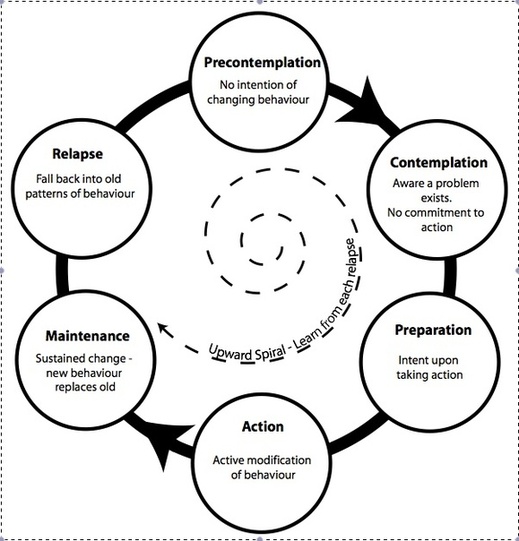
Motivational Interviewing A Client Centered Approach 2 Of 2 Socialwork Career

Awareness Months Therapy Motivational Interviewing Therapy Counseling
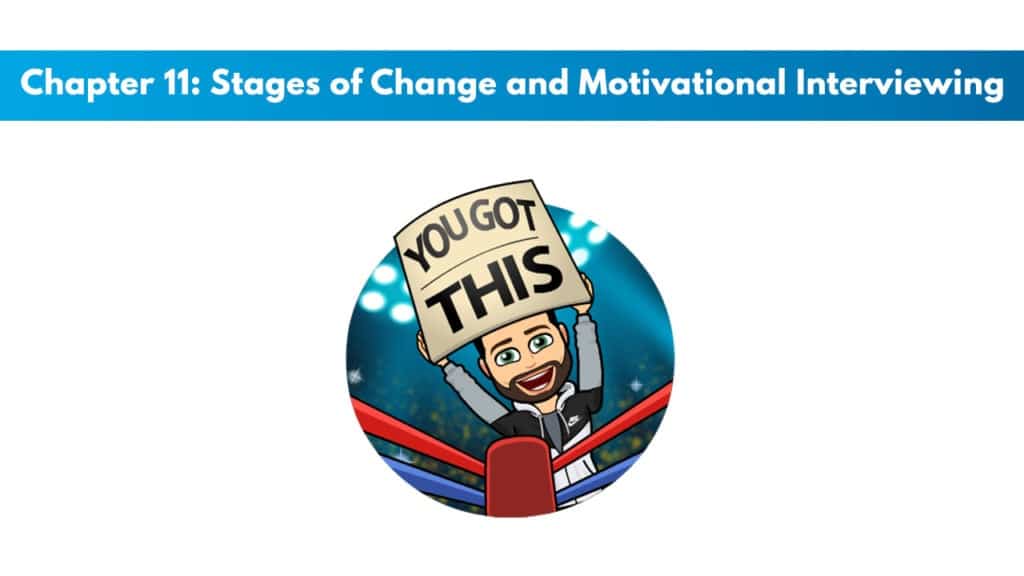
Issa Nutritionist Chapter 11 Stages Of Change And Motivational Interviewing

The Cycle Of Change National Risk Framework To Support The Assessment Of Children And Young People Gov Scot

Stages Of Behavior Change Behavior Change Motivational Interviewing Social Work

Stages Of Change Clinical Social Work Motivational Interviewing Social Work Exam

Pdf Motivational Interviewing And The Stages Of Change

3 Stages Of Change And How Best To Work With People Experiencing Each One Selfcarecharts Motivational Interviewing Clinical Social Work Social Work Exam
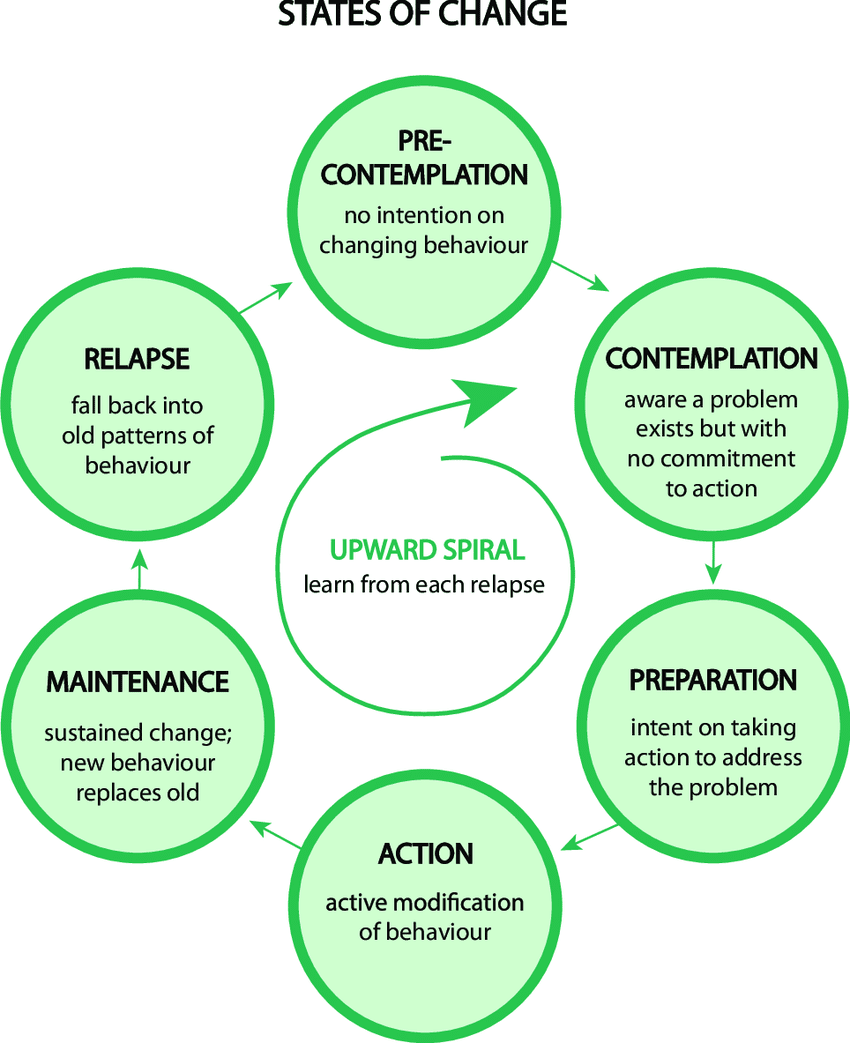
Motivational Interviewing Vfc Street Medicine

Motivational Interviewing Ppt Download
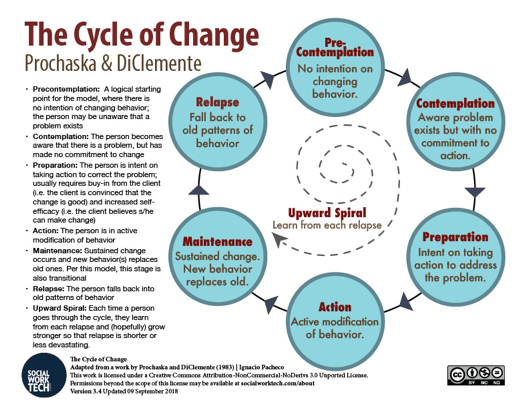
Updated Motivational Interviewing The One Tool Every Behavioral Health Provider Needs Casat Ondemand

The Stages Of Change Model Youtube
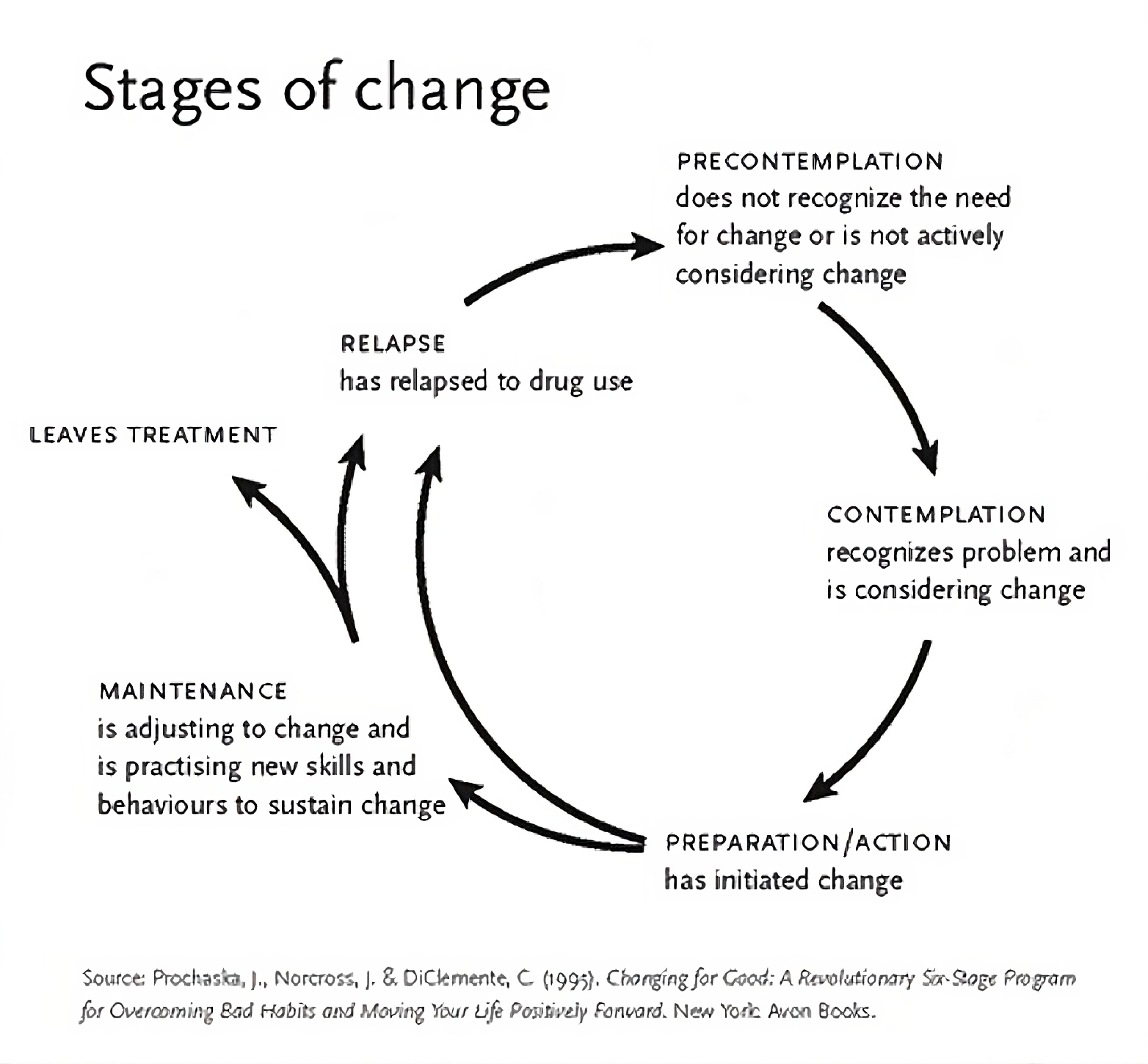
Fundamentals Of Addiction Motivation And Change Camh

Pdf Motivational Interviewing Techniques Facilitating Behaviour Change In The General Practice Setting Semantic Scholar
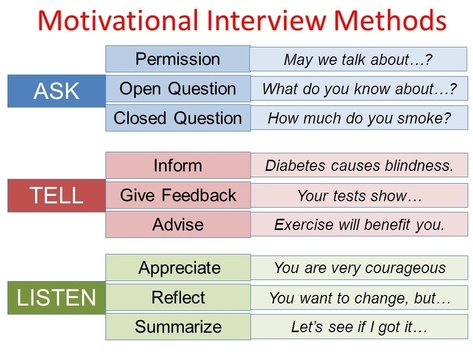
Comments
Post a Comment